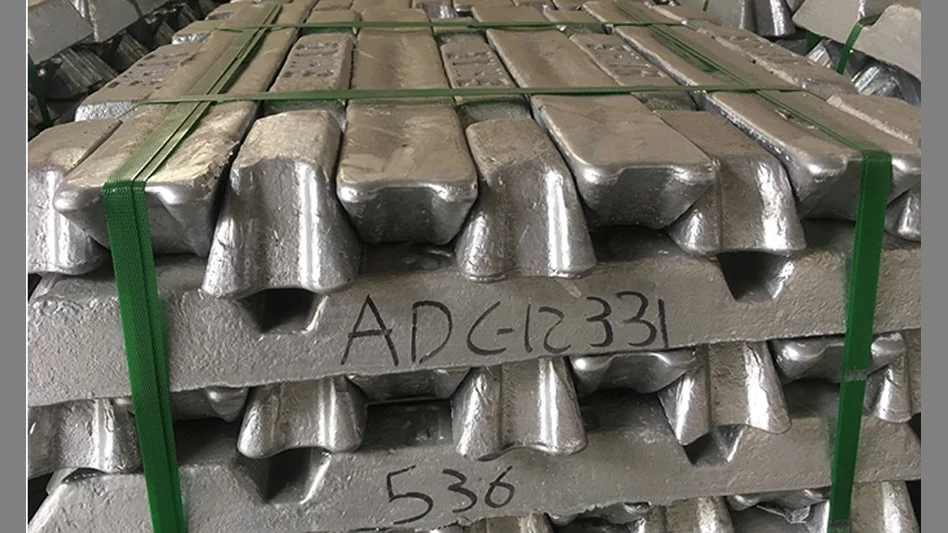
© Piman Khrutmuang - stock.adobe.com
Domestic recovered paper demand stayed strong in September, and prices for all grades of recovered paper have increased slightly as well. But a few recovered paper brokers say generation is off from where it usually is this time of year.
“Summertime traditionally tends to be a little slow anyway because people are on vacation,” a broker based on the West Coast says. “If you look at the seasonality, in the fall, generation should be picking up. I don’t know if that’s going to happen or not.”
He says demand among domestic buyers is strong for tissue grades such as sorted office paper (SOP) and coated book stock—particularly as there is some need for away-from-home tissue products as fewer COVID-19 restrictions are in place this year—but he adds that the demand could also be the effect of extremely soft generation levels.
“People aren’t really going back to the office yet, and the shredders are slow. The deinking grades, the tissue mills are struggling to get supply because the big shredding companies are slow,” the broker from the West Coast says. “There’s less coated book being generated. There’s less material coming from printers and less SOP being created for lack of people being in the office. There’s a real supply shortage.”
A broker in the Midwest says he has noticed the same trend with tissue grades in September.
“SOP remains very strong with good premiums and same with coated book stock. Consumer demand for tissue products ticked up again, especially on the postconsumer side, since restaurants and stadiums are doing better,” he says. “But there’s still a lack of supply. People are back to school, but office buildings aren’t all back.”
Domestic demand for old corrugated containers (OCC) has remained very strong as of September. Adam Josephson, managing director of equity research at Cleveland-based KeyBanc Capital Markets Inc., says demand for boxes that has persisted since last summer is driving strong OCC demand.
“OCC prices are very much tied to domestic box demand. Domestic box demand has been strong since last June, but it took a while for that box demand to be reflected in OCC prices,” he says, adding that OCC prices have escalated for the past 11 months and are now at the highest point they have been in several years.
“The historically strong box demand has led to a surge in OCC demand, which is why OCC prices are near historic highs,” Josephson says.
Containerboard mills that consume OCC have been busy this year, but they also are dealing with substantial cost inflation. He says all the major containerboard producers implemented price increases three times this year. Containerboard prices have risen by almost 23 percent in less than a year, Josephson adds.
“Containerboard prices rarely rise so dramatically in such a short period of time,” he says. “And it’s possible that producers could attempt yet another price increase later this year. … Demand remains good, supply chains remain effectively broken and cost inflation for containerboard producers appears to be intensifying as each month goes by, particularly for those that use a significant amount of recycled fiber.”
Domestic demand for recovered paper has fared better than export demand in recent months. The broker based on the West Coast says mills in Southeast Asia have slowed down their orders lately.
“Export is slow,” he says, adding that mills in Southeast Asia are not competing with domestic mills on price. “This should be the time of year they are running really strong. But you have COVID going on in a lot of countries—Vietnam, Malaysia, Indonesia, Korea. There are a lot of mills slowed back because of the COVID situation. … Domestic mills are paying far more than the export market is willing to pay.”
He adds that the current high ocean freight rates aren’t helping the slow export demand.
While mills are still hungry for recovered paper, the broker in the Midwest says their inventories seem to be “getting more in balance” than they had been earlier this year. He says more mills are expected to take downtime this fall as well.
The broker on the West Coast says he thinks recovered paper prices might plateau in the coming months, adding that recovered paper prices did not increase as dramatically in the September buying period as they have in previous months this year. “Going into September, the mills had a little bit more inventory in general than maybe they did in July and August.”
Josephson adds that he thinks OCC prices hit their peak in September, with demand appearing to have softened in late August.
“We think OCC prices have peaked, though we don’t know when they’ll fall and how rapidly,” he says. “OCC prices normally fall in November/December, owing to seasonal factors (mill maintenance downtime coupled with strong holiday box demand, the combination of which typically leads to more supply), but in this case, we think prices are also likely to eventually fall because of our belief that box demand has peaked.”
He concludes that box demand has been “exceptionally strong” since June of 2020 thanks to government stimulus and a shift in spending on services to spending on goods. “We think these factors are likely to reverse to some extent next year owing to a fiscal cliff and normalization in spending patterns.”
Get curated news on YOUR industry.
Enter your email to receive our newsletters.
Latest from Recycling Today
- ReMA opposes European efforts seeking export restrictions for recyclables
- Saica announces plans for second US site
- Update: Novelis produces first aluminum coil made fully from recycled end-of-life automotive scrap
- Aimplas doubles online course offerings
- Radius to be acquired by Toyota subsidiary
- Algoma EAF to start in April
- Erema sees strong demand for high-volume PET systems
- Eastman Tritan product used in cosmetics packaging





